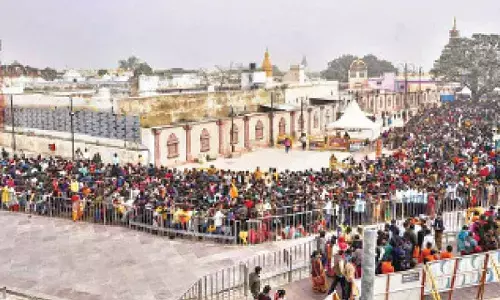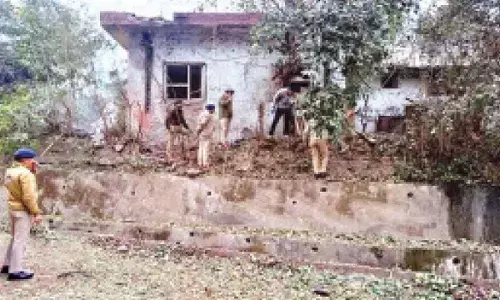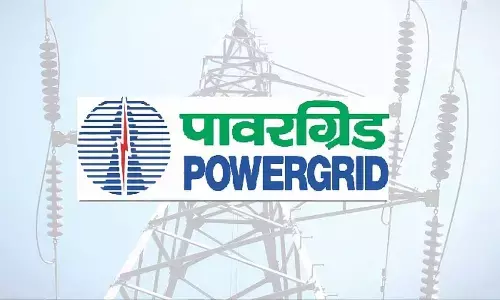In the second phase of Parliament budget session, the Narendra Modi government’s economic agenda is bound to face the biggest test in Parliament. The controversial Right to Fair Compensation and Transparency in Land Acquisition, Rehabilitation and Resettlement (Amendment) Bill, 2015 (LARR) is expected to generate much heat, particularly in Rajya Sabha, where numbers are not comfortable to the government.
The bill is being opposed by a large section of political and other groups. They want the UPA’s LARR 2013 law to stay, contending that the NDA bill has some adverse provisions, which makes it similar to the old 1894 Act. The NDA, on their part, argues that their bill is better for the economy and for the farmers.
While the government seems determined to push the Bill through Parliament, the opposition parties have vowed to oppose it tooth and nail. Even as Congress vice president Rahul Gandhi is gearing up to bring utmost pressure on the government against this bill, Prime Minister Modi seems to be determined by sending out a strong message to his party MPs that they must spread the word that his government is for the poor.
Modi attacked the opposition for being bitter and said that they were trying to project the government as anti-poor on issue of land acquisition bill. “Lies are being spread on land bill by ‘perverted minds’. Some people have decided not to speak, see or hear anything good about our government,” he said.
The 2013 Act was not born out of unanimity, but consensus, in which BJP is also a crucial player. Present Home Minister Rajnath Singh was the main speaker in the Lok Sabha and his party MP Vinay Katiyar was the main speaker in the Rajya Sabha. The standing committee which recommended the Bill for passage with amendments was chaired by Sumitra Mahajan, who is now the Speaker of the Lok Sabha and a BJP MP.
It took almost two years of discussion, after the standing committee process that took 13 months, after two all-party meetings, after a GoM under Sharad Pawar’s chairmanship spent close to three months on this, the Bill was given a final shape and introduced in the Lok Sabha and subsequently in the Rajya Sabha. In the Lok Sabha, while the Bill was being debated, amendments suggested by Sushma Swaraj were accepted. In the Rajya Sabha, when the Bill was being discussed, amendments suggested by Ravi Shankar Prasad were accepted. Nothing was done in a dictatorial or forced manner.
But, suddenly after entering national politics, forming government at the centre, within six months Narendra Modi started insisting on these amendments. Even he is not ready to refer the bill for the select committee to allow wider debate. The very fact the Rural Development Minister Chaudhary Birender Singh had refused to move the bill in the Parliament and also support the bill in public indicates there is no consensus even in the union cabinet. As about 40 per cent of voters in his Haryana constituency, he reportedly said that he would be kicked out from his constituency if he supports the bill.
All NDA alliance parties, except Telugu Desam Party, have expressed their strong reservations over the bill. So, the only option left to the prime minister to field leaders lilke Arun Jaitley and Nitin Gadkari, who don’t have any rural base, in support of this bill. Most of Rajya Sabha MPs are only coming forward in support of this bill. In spite of all assertions, Narendra Modi till now failed to convince the nation why the bill is so urgent for his government.
The only argument coming from the BJP leadership is that this bill is urgently needed for rapid industrialization of the country, particularly defence projects. But it failed to put forward any evidence to show how many industrial proposals were stalled for want of land acquisition.
Is Act blocking industrialization ?
Dr Arvind Subramanian, the Chief Economic Adviser of the government and who led the team that drafted the Economic Survey 2015-16, which looked the stalled projects, noted that at the end of December 2014, the stock of stalled projects stood at Rs 8.8 lakh crore or 7 per cent of GDP. The Survey analysed CMIE data, for about 750 projects, and did not find land related problem to be the principal cause for delaying these projects.
It would be also completely dishonest to say this Act is creating hurdles for industrial growth as it came into force only on January 1, 2014. How can the Prime Minister in less than eight months conclude that it is strangling industrialisation. Regarding the argument that defence projects are held up, Section 40 of the Act states that for defence and national security, the government don’t require consent or social impact assessment (SIA).
BJP leaders making a case for the Land Bill argued for many farmers in India, agriculture is not a viable option. But he fails to recognise that if farmers are eager to quit, then there should be no problem in securing the consent of farmers in most in procuring land. Yet, one of the key contentions in the land bill is the dilution or elimination of the consent clause.
Just as Indian businesses are eagerly awaiting an exit policy to facilitate bankruptcy, many farmers would be satisfied with a functioning land market, which would allow them to decide whether and how to exit from agriculture in favour of other better pastures. Unfortunately, the LARR of 2013, and the proposed Amendments of 2015, do little to facilitate the emergence of a land market.
It is beyond doubt that the NDA government failed to give a fair trial for this act and hurriedly going for amendments with ulterior motives. Numerous HC judgments and three SC judgments between January and April 2014 have upheld various sections of the Act, particularly Section 24, which is a retrospective clause and is now sought to be amended through the ordinance.
Veteran farmers’ leader and former MP Sharad Joshi commenting about this bill, observed that the essential question is not of whether a sufficient percentage of farmers approve of the land acquisition, nor whether the compensation being paid is adequate. The more important question is: do the farmers have right to their property or not and do they continue to have the right to property in spite of the fact that they have continued to till the land in spite of the losing character of the agriculture? If this basic question was sought to be resolved by the Modi government it would not face the kinds of problems it is facing today, he added.
Fail to learn lesson from CPM
In this regard, Narendra Modi seems to be failing to learn lessons from the bitter experiences of CPM in West Bengal. There need not be any second opinion to say the left party is considered as champion of land reforms in West Bengal, which makes the party to survive for a long term in the state. When it proposed TATA’s car project, no one suspected its honest attempt for industrialization of the state. It tried to acquire lands that were earlier distributed by the same government and offered one of the best rehabilitation and compensation package in the country. No court find fault with this process.
The same poor people, who were empowered by owing lands at the courtesy of CPM government, refused to give up their emotional bondage with the land, which was cultivated taking inspiration from the Left leadership and even went to the extent of revolting against the same government. The Nandigram farmer’s revolt was different from Narmada Bachavo Andolana spearheaded by Medha Patkar and other movements in the country. Till then they were all seeking better rehabilitation and compensation packages. But for the first time the farmers in West Bengal started asserting their rights on their lands.
Since independence, government had acquired over 4 lakh acres of land, till the beginning of liberalization era. Except uproar seeking more compensation, hardly government faced any major resistance. But when the government started to acquire land on behalf of corporates, with out allowing farmers to share the corporates huge prospects out of such lands, people started opposing and revolting against regimes.
But, Narendra Modi seems to be refusing to realilse this fact. The huge turnout at Congress rally also should be seen the farming community is not convinced with the new bill. He also seems to be not in a position to examine concerns expressed by RSS out-fits like Bharateeya Mazdoor Sangh (BMS), Bharateeya Kisan Sangh (BKS) and Swadeshi Jagaran Manchi (SJM). With numerical strength even now the government succeed to withstand opposition onslaught against this bill, ultimately in the people’s court it has to pay heavy price. Classic example of CPM’s how lost ground in West Bengal is before us.
By Ch. Narendra















